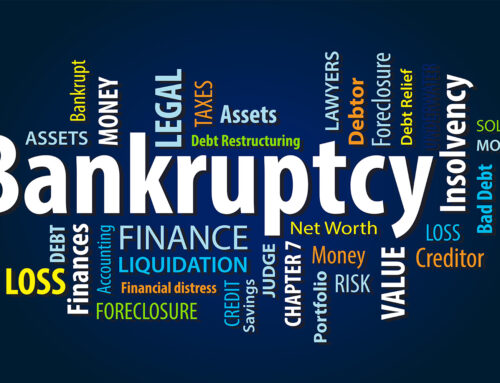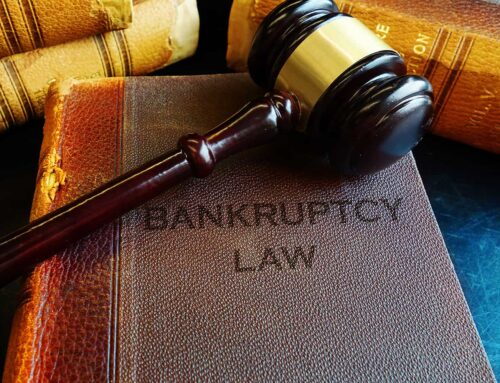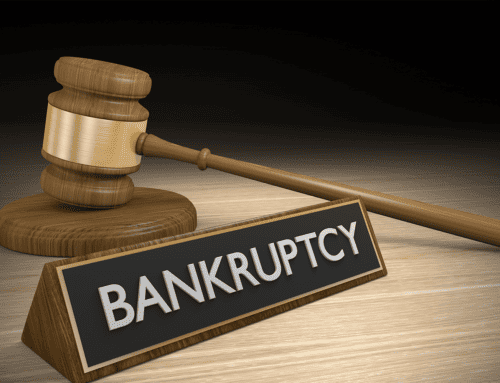Employers filing for bankruptcy is one of the most damaging things to happen to employees, especially during the holidays. Experiencing a loss of income is devastating, but even more detrimental is the potential loss of health benefits and retirement funds you spent years accumulating. Fortunately, employees have rights when employers file for bankruptcy, and you should know what your rights are.
When Employers File Chapter 7 Bankruptcy
Employers who file a Chapter 7 bankruptcy cease operations and close their doors. Chapter 7 bankruptcy is dubbed “liquidation” because all assets are liquidated to pay off creditors in order of priority, established by the bankruptcy code. The bankruptcy trustee oversees the process, determines who falls into what category, and manages the liquidation process. The prioritized list of creditors is as follows:
- Those with secured debt (secured by capital mainly consisting of an asset with an assigned value)
- The administration of the bankruptcy proceedings
- Prioritized unsecured claims (may include employee wages and benefits claims)
- General unsecured claims (everything else)
The Bankruptcy Court Will Notify Employees of a Chapter 7 Filing
You will generally be notified of your employer’s bankruptcy filing directly from your employer or the bankruptcy trustee. You should receive the following information:
- The filer’s name (your employer)
- The bankruptcy case number
- Detailed information on the bankruptcy court overseeing the matter
- The type of bankruptcy filing (i.e., Chapter 7 or Chapter 11)
Employees Can File Claims Against Their Employers
If your employer owes you compensation or benefits in any form, you can file a claim. Your claim must be completed promptly with the bankruptcy court listed in the notification of filing to consider distribution under the company’s plan. The form is called a Proof of Claim. It must include your employer’s name, the bankruptcy case number, the bankruptcy court overseeing the matter, the amount owed to you, and any supporting documentation.
When Employers File Chapter 11 Bankruptcy
Unlike a Chapter 7 filing, Chapter 11 allows an employer to stay in business and reorganize their debt. In this scenario, employees could remain at work with full benefits, while other employees may be laid off.
Laid-off employees are similar to those whose employers file Chapter 7 bankruptcy because they are owed money; however, there are also differences. In many situations, a committee is formed representing all unsecured creditors who oversee payments of unsecured debt. The committee’s goal is to prioritize and repay debts and emerge as a financially solid organization.
How Are Benefits Impacted?
Retirement funds should be protected from bankruptcy filings because regulations require adequate funding. Moreover, they also require funds to be kept separate from your employer’s other assets. Funds should be held in a trust or insurance vehicle and inaccessible to creditors.
The Pension Benefit Guaranty Corporation (PBGC) insures some pension benefits and assumes responsibility to fund pensions if employers are unable. This is not the case for 401(k) plans. You may qualify for the full amount of your benefit, although it may not be paid out until you are of retirement age. If funds are distributed, you may want to roll them over into an IRA to avoid the tax penalty for early withdrawal.
What About Health Insurance?
You may continue to be covered by health insurance if your employer files Chapter 11 bankruptcy. If you are laid off, and your employer provides insurance to the remaining employees, you should be eligible for COBRA coverage for up to 18 months. If, however, your employer terminates insurance coverage, you may not be eligible for COBRA. You may be able to sign on to your spouse’s insurance plan or seek individual healthcare through the Affordable Healthcare Act. The exception to this would be retirees receiving benefits before the filing.
Additional Resources
The Department of Labor’s Employee Benefits Security Administration oversees these types of issues. If you have questions about what we’ve covered or had issues with your employer abiding by the requirements outlined for a bankruptcy filing, give them a call at (866) 444-3272.






